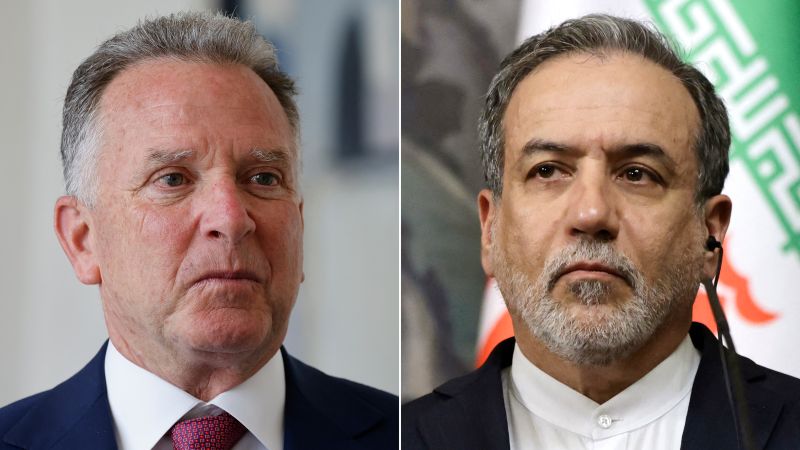US-Iran Nuclear Talks: Cautious Optimism
The ongoing negotiations surrounding Iran's nuclear program have entered a crucial phase, sparking a wave of cautious optimism among international observers. While a breakthrough remains elusive, recent developments suggest a potential path towards a revived 2015 Joint Comprehensive Plan of Action (JCPOA), or at least a more manageable situation. This article will delve into the complexities of these talks, analyzing the key challenges, potential outcomes, and the overall significance for global security.
Understanding the Stakes: Why These Talks Matter
The stakes in the US-Iran nuclear talks are incredibly high. At the heart of the matter is Iran's uranium enrichment program. While Iran maintains its enrichment activities are for peaceful purposes, the potential for weaponization remains a significant concern for the international community. A breakdown in negotiations could lead to:
- An escalated arms race: Without a deal, Iran could accelerate its enrichment program, potentially bringing it closer to the threshold needed for a nuclear weapon. This could trigger a regional arms race, destabilizing the Middle East.
- Increased regional tensions: The already volatile geopolitical landscape in the Middle East could become even more unstable, potentially leading to increased conflict.
- Undermining international non-proliferation efforts: A failure to reach an agreement would seriously undermine the international non-proliferation regime, sending a dangerous message to other states with nuclear ambitions.
Conversely, a successful outcome could lead to:
- Reduced risk of nuclear proliferation: A revived JCPOA would reinstate strict limitations on Iran's nuclear program, significantly reducing the risk of it developing nuclear weapons.
- Improved regional stability: A de-escalation of tensions could create space for diplomatic solutions to other regional conflicts.
- Strengthened international cooperation: A successful negotiation would demonstrate the effectiveness of multilateral diplomacy in addressing complex global challenges.
Key Challenges and Hurdles
Despite the cautious optimism, several significant hurdles remain:
Sanctions Relief:
Iran demands significant relief from US sanctions imposed since the Trump administration withdrew from the JCPOA in 2018. These sanctions have crippled Iran's economy, and Tehran insists on verifiable guarantees that future administrations won't reimpose them. The US, however, is reluctant to offer guarantees that might be seen as legally binding.
Iran's Nuclear Advances:
Since the US withdrawal, Iran has significantly advanced its nuclear program, exceeding the limits set by the JCPOA. Returning to the original parameters will require significant concessions from Iran, something that may be politically difficult for the current Iranian government.
Verification and Monitoring:
Ensuring compliance with any new agreement is crucial. The International Atomic Energy Agency (IAEA) plays a critical role in monitoring Iran's nuclear activities, but there are ongoing disagreements about the scope and extent of inspections. Building trust and ensuring transparency will be vital for a successful outcome.
Regional Security Concerns:
Concerns about Iran's regional activities, including its support for proxy groups, continue to be a major point of contention. Addressing these concerns will likely require parallel diplomatic efforts outside the nuclear talks themselves.
Potential Outcomes and Their Implications
Several outcomes are possible:
- A revived JCPOA: This would be the most desirable outcome, restoring the limitations on Iran's nuclear program and reducing regional tensions. However, this requires significant compromises from all parties.
- A weaker agreement: A less comprehensive agreement might address some of the most pressing concerns but leave loopholes that could be exploited by Iran in the future.
- A complete failure: This would be the most dangerous outcome, potentially leading to a regional arms race and increased conflict.
The Path Forward: Cautious Optimism or Naive Hope?
While recent developments suggest a path towards a deal, the road ahead remains challenging. The cautious optimism surrounding the talks stems from the potential benefits of a successful agreement, but it's tempered by the significant obstacles that remain. The international community must continue to engage in constructive diplomacy, prioritizing a comprehensive and verifiable agreement that safeguards global security. The future of the region, and indeed the world, hinges on the success of these delicate negotiations. Only time will tell whether this cautious optimism will translate into lasting peace or a return to heightened tensions.
